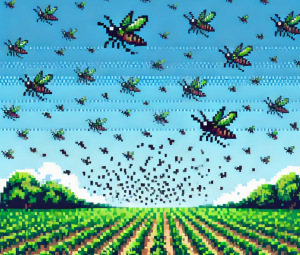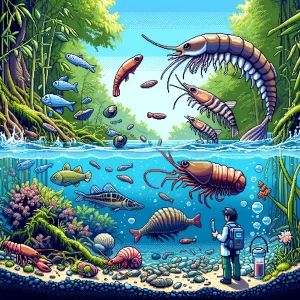
Science News Round Up, April 18, 2025
Are you cutting out early today? Don’t forget to check out what we have on tap for next week.

Urgent: Stay Ahead in Science Innovation!
Join thousands of science enthusiasts and professionals staying at the forefront of discovery. Subscribe for free and help sustain our self-funded delivery of essential insights every week. 🚨 Act now—share this blog to strengthen our reach and impact!
Artificial Intelligence and Video Content: A Creative Revolution or a Crisis of Originality?
The rapid advancement of artificial intelligence (AI) is transforming the video content creation landscape by automating routine tasks and making production more accessible and cost-effective. While AI-powered tools offer creators unprecedented opportunities for efficiency and global reach—such as YouTube’s auto-dubbing and content summarization features—there are growing concerns about the potential crisis of originality, as well as ethical challenges related to AI-generated content’s impact on copyright and artistic identity. Although AI will not replace genuine human creativity, its integration into the creative process will likely shift job roles and industry dynamics, necessitating careful regulation and thoughtful adoption to safeguard authenticity and creativity in digital content.
Climate Change Will Increase Arsenic Levels in Rice, Study Finds
A groundbreaking study reveals that climate change is set to exacerbate toxic arsenic levels in rice, with rising temperatures and carbon dioxide levels predicted to increase inorganic arsenic concentrations, thereby posing significant health risks, including cancers and cardiovascular diseases, to millions across Asia by 2050. This alarming trend underscores the urgent need for mitigation strategies like improved plant breeding, soil management, and public health initiatives, as rice is a staple food for a large portion of the global population.
New NSF awards could soon be frozen
The US National Science Foundation (NSF) has halted all new research grants, purportedly due to directives from Elon Musk’s Department of Government Efficiency (DOGE), which is scrutinizing active grants for diversity, equity, and inclusion (DEI) language, potentially jeopardizing over 200 projects. This move, coupled with the contentious claim from Senator Ted Cruz’s report alleging wasteful spending on DEI-focused projects, underscores the increasing politicization of science funding, potentially undermining vital research crucial for national and economic security.
How labor killed a bill to let California wildfire victims sue Big Oil for climate change
Senate Bill 222, which aimed to hold oil companies financially accountable for climate-related disasters in California, was defeated in the state legislature due to opposition from powerful labor unions representing oil industry workers. Despite support from environmental groups, the bill’s failure highlights how labor alliances with the oil sector can undermine aggressive climate initiatives, even in environmentally progressive states like California.
Of honeybees and polar bears: Saving beloved species isn’t enough — but it’s a good start
The phenomenon of rallying around “flagship species,” like polar bears and honeybees, highlights the emotional connections that drive public interest and conservation efforts, but it underscores the fact that many less charismatic species face quiet extinction. While such emotional appeals can spur action and policy changes, they may also contribute to climate change burnout, especially when broader policy and industrial changes are perceived as lacking, indicating the need for collective action and systemic change to address environmental crises effectively.



